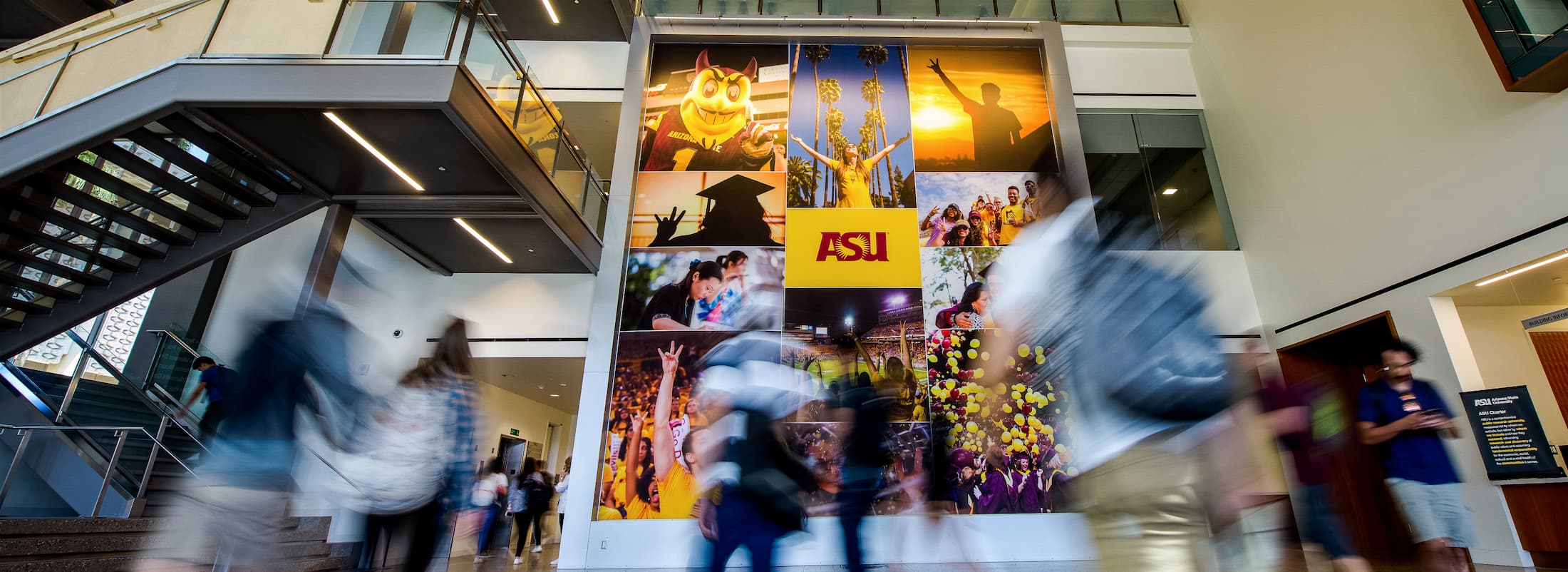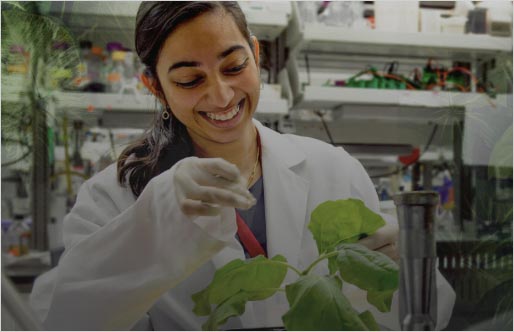
Centers and institutes
Filters

The Biodesign Institute delivers the future of nature-inspired scientific innovation today for the betterment of human health, community safety and global sustainability.
Biodesign Institute
The ASU-Banner Neurodegenerative Disease Research Center advances the discovery of disease mechanisms, risk factors, biomarkers, and drugs for the understanding, detection, tracking, treatment and prevention of neurodegenerative diseases.
Biodesign Institute
The Biodesign Center for Applied Structural Discovery develops groundbreaking technologies and methods to accelerate discoveries involving the structure and functions of biomolecules, especially proteins.
Biodesign Institute
The Biodesign Center for Environmental Health Engineering works at the regional, national and global scale to better understand and manage key environmental determinants of human health and global sustainability.
Biodesign Institute
The Biodesign Center for Health through Microbiomes creates fundamental knowledge to develop microbe-based health interventions and diagnostics for better human health.
Biodesign Institute
The Biodesign Center for Immunotherapy, Vaccines and Virotherapy creates novel therapies for cancer and infectious diseases.
Biodesign Institute
The Biodesign Center for Innovations in Medicine is committed to developing technologies that could transform health care.
Biodesign Institute
The ASU Biodesign Clinical Testing Lab tracks critical COVID-19 trends and partners with the state to provide public testing.
Biodesign Institute
The Biodesign Center for Personalized Diagnostics aims to create better health through early detection and treatment.
The Arizona Cancer Evolution Center (ACE) advances the fundamental understanding of cancer and its clinical management through the development and application of evolutionary and ecological models to cancer biology.
The center works to improve patient care by developing innovative therapeutic technologies, imaging acquisitions, imaging analytic tools, machine learning and artificial intelligence algorithms, taking a patient-inspired approach.
The Building Reliable Advances and Innovation in Neurotechnology (BRAIN) Center is an industry/university cooperative research center at Arizona State University and the University of Houston. This partnership allows for rigorous testing of efficacy, safety and long-term reliability of neurotechnology that would not be otherwise possible within the traditional silos of academic, industry, regulatory and clinical communities.
CAIPER reimagines teamwork and collaboration to transform healthcare.
The Center for Child Well-Being advances child and family well-being.
The Center for Cognitive Ubiquitous Computing (CUbiC) is an interdisciplinary research center focused on human-centered multimedia computing on assistive, rehabilitative and healthcare applications.
The ASU Center for Evolution and Medicine is a university-wide presidential initiative with a mission to improve human health by establishing evolutionary biology as an essential basic science for medicine, worldwide.
The Center for Global Health advances the ability to understand and address global health challenges as a critical, complex part of the broader human condition.
The Center for Health Information and Research (CHiR) is a resource, tool and collaborator for individuals and organizations that need comprehensive health care information and data analytics for public, private and research uses.
CHPDP conducts translational research, training and outreach in close partnership with communities to improve health and prevent disease in vulnerable populations.
CIHRA focuses on innovative wellness, strength-based, and resilience- and capacity-building research opportunities that translate into positive change.
The center strives to change the world into a more compassionate and inclusive place by creating a mindful, welcoming culture of caring and belonging.
The Center for Public Health Law and Policy explores emerging global and domestic issues in public health law, policy and ethics.
The Family Violence Center is a non-partisan center that engages in research, public policy work, program evaluation, and education and training designed to eradicate family violence.
The Global Center for Applied Health Research designs, implements and tests evidence-based and culturally appropriate interventions to improve the health and wellbeing of children, youth and families around the world through equitable research collaborations between transnational teams of researchers and community partners.
The Humanities Institute serves the humanities research and engagement missions of Arizona State University through the study, promotion, and advancement of human cultures.
The mission of the ASU REACH Institute is to bridge the gap between university-based research and practice to promote children’s mental and physical health and academic achievement.
SIRC's interdisciplinary team of researchers partners with communities to conduct research and develop solutions to eliminate health disparities in the Southwest and beyond.